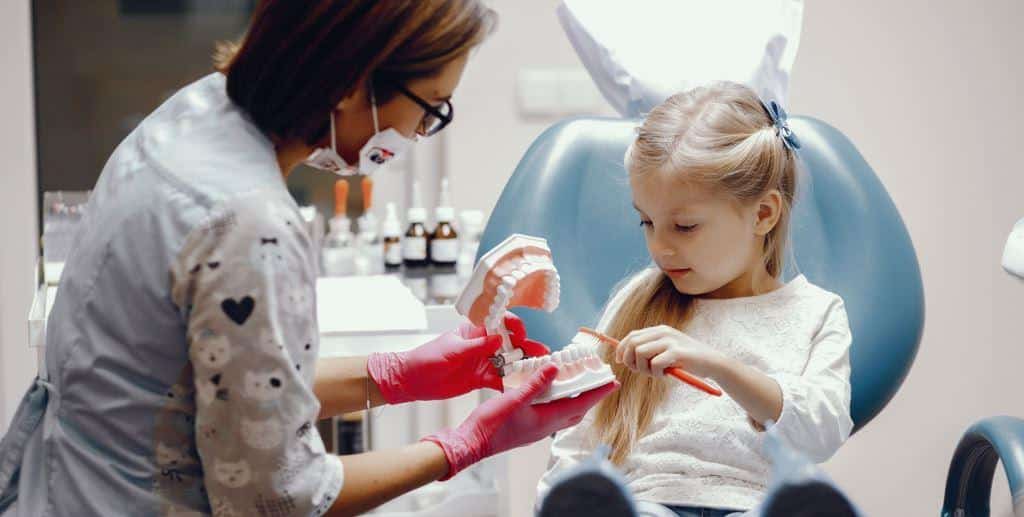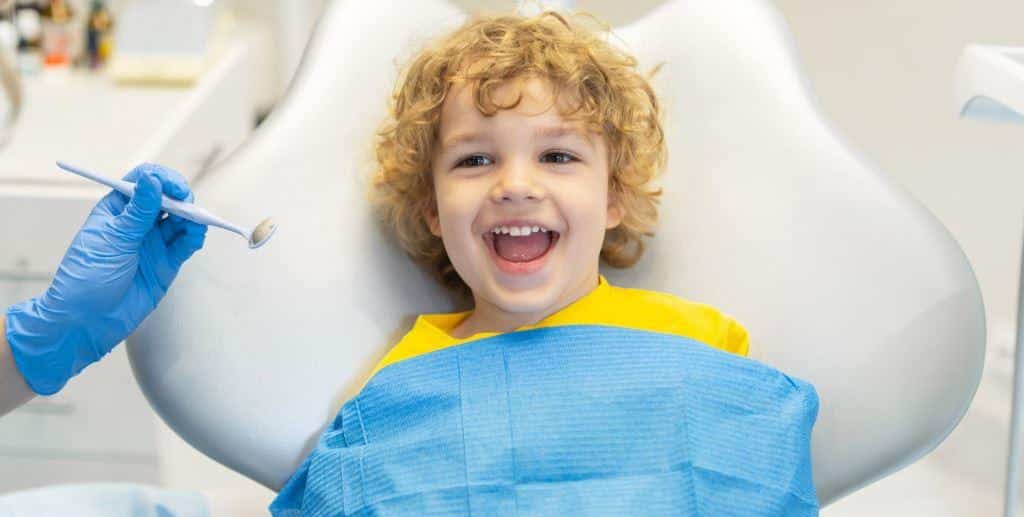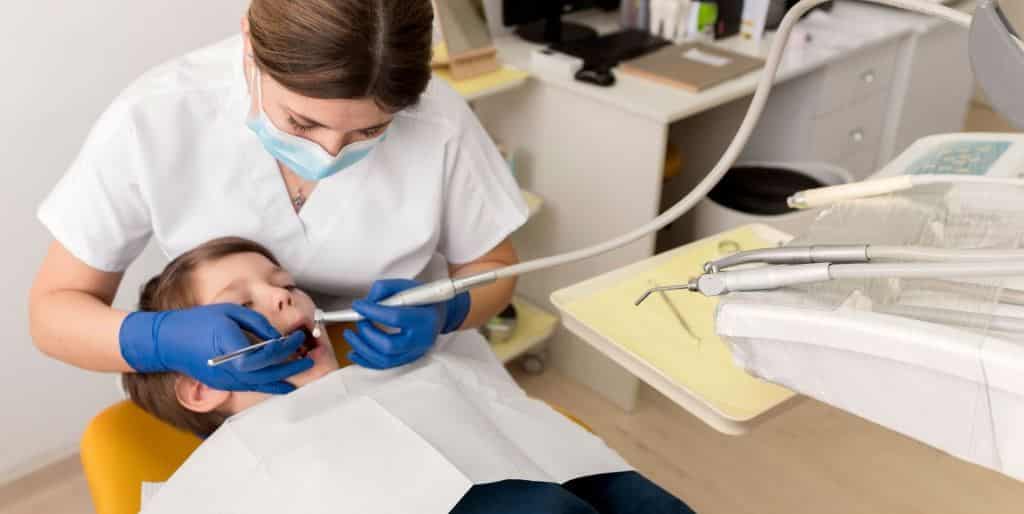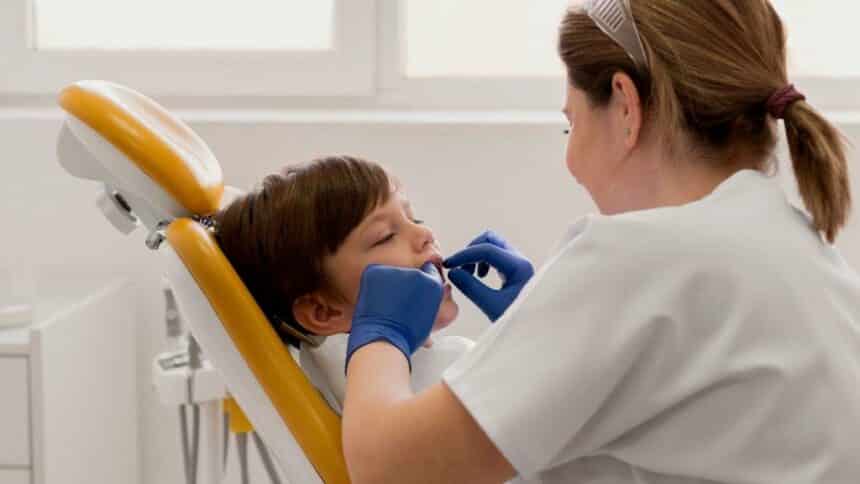Decayed deciduous tooth in a toddler - treat, extract or leave? The answer is simple - it's best to prevent decay. However, if tooth decay does occur, it is necessary to visit the dentist as soon as possible and start treatment. You can find out exactly what treatment involves, when it's worth having a filling in a deciduous tooth in the UK and how much it costs in our article.
Milky teeth deteriorate faster
This is a fact. Millipedes are less mineralised than permanent teeth making them more susceptible to caries. This one also spreads much faster in children whose dentition is mainly milk teeth.
IMPORTANT: This disease can occur as quickly as first teeth Your little one.
Untreated tooth decay can cause not only tooth pain, but also problems with sleep and speech, and in the future malocclusion and crooked teeth. The consequence can be orthodontic treatment and considerable expense, but also reduced self-esteem.

You can read more about the disease itself in our article "Child caries - causes, symptoms and treatment".
Prevention is therefore better than cure. And how to do it? First of all, as a parent, take care of good oral hygiene from a very young age. If your little one does not yet have teeth, wash his gums with a gauze pad soaked in boiled water. Then consistently introduce the habit of brushing and flossing.
If your child is not a fan of brushing their teeth we recommend our article "10 ways to encourage your child to brush their teeth".
Regular visits to the dentist are another way to keep your child away from unpleasant treatment. Start with an adaptation visit, during which the toddler has the opportunity to get to know the dentist and become accustomed to the surgery. Thanks to this, he or she will not associate the dentist with pain.
But what to do when tooth decay appears on a child's teeth?

Caries treatment, or filling a deciduous tooth in the UK
There is still an opinion among less informed parents that milk teeth do not need to be treated. This is a big mistake that can result in the need to extract the deciduous tooth.
Therefore, if you see changes in your child's mouth, make an appointment as soon as possible. The earlier you start treatment, the less painful it will be for your little one.
And what is the treatment of a millipede? It does not differ from the standard treatment of permanent teeth. Initially, the dentist cleans the tooth and then places a filling on the milk tooth. This is often made of a special material dedicated to deciduous teeth. Their durability is as good as that of adult fillings, thus the milk tooth filling will last the toddler until the permanent tooth appears.

And when does treatment no longer make sense?
It may happen that decay has damaged the tooth so much that filling it is no longer possible. We would like to remind you that extraction is always - also in the case of children - a last resort. And you can read more about this in our article "Extraction of a deciduous tooth when it is necessary"
Why prevent the extraction of deciduous teeth? Extraction too early causes malocclusion and, consequently, the need for orthodontic treatment. That is not all - milk teeth are essential for learning to speak. Lack of milk teeth may result in the need for regular visits to a speech therapist.
If, for various reasons, your child is already struggling with crooked teeth, we recommend seeing an orthodontist as soon as possible. You can read more about treatment and braces in our text "Braces for children - when is it worth thinking about and how much does it cost?" .

Cost of filling a deciduous tooth in the UK
Clearly, the cost of filling a deciduous tooth in the UK will depend on the practice, but also the size of the cavity. At our practice you will pay £60 for such a visit.
However, as we mentioned, prevention is better than cure, which is why we always recommend check-ups and preventive treatments such as varnishing, fluoridation and varnishing. You can read more about them in the text "Preventive treatments for your child - or how to keep your little one's teeth healthy".
If you have any further questions - please email or call us.

